#seán ó ríordáin
Text
There’s not a place, stream or bush,
however remote; or a flagstone
north, south, east nor west
that we shouldn’t consider
with affection and empathy.
No matter how far South Africa,
no matter how distant the moon,
they’re part of us by right:
there’s not a single spot anywhere
we’re not a part of. We issue from everywhere.
Seán Ó Ríordáin, Apathy Is Out
trans. Greg Delanty
"A person must keep traveling from self to self."
#poetry#quotes#quotations#seán ó ríordáin#apathy is out#self journey#humanitarianism#greg delanty#ireland
14 notes
·
View notes
Text
Nollaig na mBan Shona Daoibh!
On this day it is the tradition in Ireland for the women to get together and enjoy their own Christmas, while the men folk stay at home and handle all the chores. It is also common for children to help their mothers and grandmothers with household chores and extra help.
The Nollaig na mBan tradition has regenerated tremendously in many parts of Ireland and on the west coast, the tradition is…
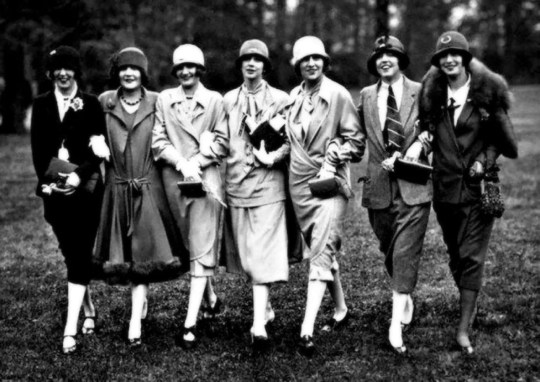
View On WordPress
#&039;Oíche Nollaig na mBan&039;#Epiphany#Little Christmas#Nollaig na mBan Shona Daoibh#Poem#Poetry#Seán Ó Ríordáin#Theo Dorgan#Women’s Christmas
17 notes
·
View notes
Text
Cork in Verse | Ana Spehar Interviews Greg Delanty
Greg Delanty’s latest collection of poems is No More Time, and a book of translations from Seán Ó Ríordáin titled Apathy Is Out. He has received many awards, including a Guggenheim for poetry. He has just been awarded The David Ferry an Ellen LaForge Poetry Prize for his body of work. He teaches at Saint Michael’s College, Vermont, and he’s a US citizen as well as an Irish citizen. Delanty was born in Cork City in 1958 and lived there until 1986. He returns annually.
Delanty’s papers up to 2010 have been acquired by the National Library of Ireland, and from 2010-2015 at University College Cork. The National Library of Ireland are announcing that the cataloging of his papers is finished and will be unmasked and open to the public later this month, September 2022.
Is there a common theme, style or structure you find yourself leaning to in your poetry?
I have ten or so individual collections out, plus a Collected poems 1986-2006 and a Selected Delanty….. the common theme is all of life, birth/death and everything (I can and want to get into poems) in between. My books of poems tend to become what I’m engrossed in at the time. For instance, the book The Hellbox has to do with the male world, poetry, the past, remaking…; The Blind Stich with the female world; and The Ship of Birth the child world. These three books, which come in that order, are a kind of trilogy, but it wasn’t thought out like that before the book or books were being written. Actually, they are about much more than what I just said (at least that is what I think, and I don’t want to pigeonhole them.
Does the creative process of writing affect your mood?
I’m not sure what you mean by the creative process, as everything is the creative process to me. It is a natural part of my life, every day since the late 1970’s…it is my life. But sometimes, say, if I think I got a good poem I am pleased (though the next day I may realise it is a dud) etc.
Do you write every day? How often do you write?
I am always open to writing every day and anywhere really, but no, not every day--- though I probably redraft most days poems which I have written…. I do read poetry for at least an hour every day and find seven poems that I like enough by other poets to ballast me emotionally through the day and also to ballast me poetry-wise. Reading poems gives me spirit fuel. A poet should know as much as possible all the poetry of the past that they can know and renew off that past world of poetry and out of their particular selves.
Do you have a favourite writing space?
No, not really now and that has varied over the years. I can write anywhere — and when it happens in a public place, I have seemed rude to people, say in a bar, cafe or restaurants when I get a poem…. I cut the outside world off and shut others out… I explain to them usually afterwards and apologise and sometimes people understand.
What are you reading at the moment?
I read poetry every day, but vary it… Right now, today I am reading W.H. Auden, Tony Hoagland, Les Murray, and two new poets to me Terrance Hayes, American Sonnets for My Past and Future Assassin, and Molly Twomey’s Raised Among Vultures. And I am also dipping into the poetry magazine Southward 41. This Morning I read my old friend Gerry Murphy’s brilliant poems in it and Bernadette McCarthy’s poems (brilliant — especially the “Gearagh” poem). I have my next set of books lined up and I see one is the great Thomas McCarthy’s book Prophecy (which I will review for Reading Ireland) … I have a huge library, thousands of poetry books. I am also reading poetry going back to Amergin for a new Munster Anthology of Poetry from the earliest times to the present day. In other words, I’m eating and drinking poetry all the time, including in my sleep.
P.S. Oh, today I also am reading Apocalypse: An Anthology, an anthology of Apocalyptic poets, a movement of poets from the 1930s into 1950s. Many of these poets and poems have been forgotten, but some poets and poems deserve to be known like Brenda Chamberlain’s “Dead Ponies” or Noël Welch’s “The Red Shirt”. The anthology is edited by James Keery from Carcanet Press. The Apocalyptic poets have always interested me and what they were trying to do and contain in poetry.
THE ALIEN
I’m back again scrutinizing the Milky Way
of your ultrasound, scanning the dark
matter, the nothingness, that now the heads say
is chockablock with quarks and squarks,
gravitons and gravatini, photons and photinos. Our sprout,
who art there inside the spacecraft
of your Ma, the time capsule of this printout,
hurling and whirling towards us, it’s all daft
on this earth. Our alien who art in the heavens,
our Martian, our little green man, we’re anxious
to make contact, to ask divers questions
about the heavendom you hail from, to discuss
the whole shebang of the beginning and end,
the pre-big bang untime before you forget the why
and lie of thy first place. And, our friend,
to say Welcome, that we mean no harm, we’d die
for you even, that we pray you’re not here
to subdue us, that we’d put away
our ray guns, missiles, attitude and share
our world with you, little big head, if only you stay.
Greg Delanty
From Collected 1986-2006, Oxford Poets, Carcanet Press
PATIENT
The snow has melted clean off the mountain.
It’s winter still. Yet another indication that Gaia
is in trouble, that things aren’t sound.
The rocky mountaintop shines
like the bald head of a woman after chemo
who wills herself out of her hospital bed
to take in the trees, the squirrels, the commotion
in town, sip beer in a dive, smiles
to the child staring at her shining head, wishing
it didn’t take all this dying to love life.
Greg Delanty
From The Greek Anthology, Book XVII, Oxford Poets, Carcanet Press

0 notes
Text

— Seán Ó Ríordáin
68 notes
·
View notes
Photo
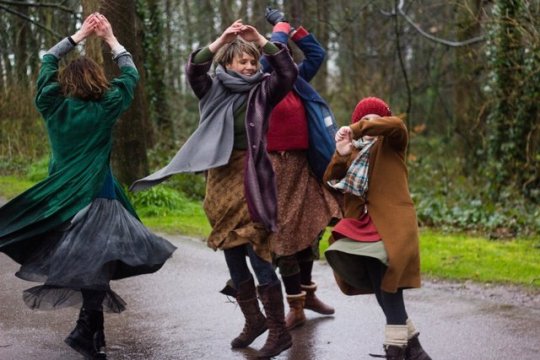
Thanks to Oonagh Kearney for suggesting I round out my Day 60 #90minDirectedbyWomen film viewing practice by watching her exquisite short Oíche Nollaig na mBan. It’s streaming on Vimeo here...
“Commissioned by the Arts Council and TG4, in association with the Galway Film Centre, "Splanc! 2016" is a special edition of the Irish-language documentary scheme in which film artists provide their creative responses to the legacy of 1916 in the arts in Ireland.
Oíche Nollaig na mBan is inspired by Seán Ó Ríordáin’s well known poem and aims to capture the powerful energy of the work in a highly visual treatment. Working with a schoolgirl choir and inter-generational cast of female performers, the film pays tribute to Ó’Riórdáin’s language and radical vision of Women’s Christmas night.“
Have you explored Oonagh Kearney’s work?
1 note
·
View note
Photo

James Augustine Aloysius Joyce was born on February 2, 1882. He was an Irish novelist, short story writer, poet, teacher, and literary critic. He contributed to the modernist avant-garde movement and is regarded as one of the most influential and important writers of the 20th century. Joyce is best known for Ulysses (1922), a landmark work in which the episodes of Homer's Odyssey are paralleled in a variety of literary styles, most famously stream of consciousness. Other well-known works are the short-story collection Dubliners (1914), and the novels A Portrait of the Artist as a Young Man (1916) and Finnegans Wake (1939). His other writings include three books of poetry, a play, his published letters and occasional journalism.
Joyce was born in Dublin into a middle-class family. A brilliant student, he briefly attended the Christian Brothers-run O'Connell School before excelling at the Jesuit schools Clongowes and Belvedere, despite the chaotic family life imposed by his father's unpredictable finances. He went on to attend University College Dublin.
In 1904, in his early 20s, Joyce emigrated to continental Europe with his partner (and later wife) Nora Barnacle. They lived in Trieste, Paris, and Zürich. Although most of his adult life was spent abroad, Joyce's fictional universe centres on Dublin and is populated largely by characters who closely resemble family members, enemies, and friends from his time there. Ulysses in particular is set with precision in the streets and alleyways of the city. Shortly after the publication of Ulysses, he elucidated this preoccupation somewhat, saying, "For myself, I always write about Dublin, because if I can get to the heart of Dublin I can get to the heart of all the cities of the world. In the particular is contained the universal."
Joyce's work has been an important influence on writers and scholars such as Samuel Beckett, Seán Ó Ríordáin, Jorge Luis Borges, Flann O'Brien, Salman Rushdie, Robert Anton Wilson, John Updike, David Lodge, Cormac McCarthy, and Joseph Campbell. Ulysses has been called "a demonstration and summation of the entire [Modernist] movement". The Bulgarian-French literary theorist Julia Kristeva characterised Joyce's novel writing as "polyphonic" and a hallmark of postmodernity alongside the poets Mallarmé and Rimbaud.
Some scholars, notably Vladimir Nabokov, have reservations, often championing some of his fiction while condemning other works. In Nabokov's opinion, Ulysses was brilliant, while Finnegans Wake was horrible.
Joyce's influence is also evident in fields other than literature. The sentence "Three quarks for Muster Mark!" in Joyce's Finnegans Wake is the source of the word "quark", the name of one of the elementary particles proposed by physicist Murray Gell-Mann in 1963.
The work and life of Joyce is celebrated annually on 16 June, known as Bloomsday, in Dublin and in an increasing number of cities worldwide, and critical studies in scholarly publications, such as the James Joyce Quarterly, continue. Both popular and academic uses of Joyce's work were hampered by restrictions imposed by Stephen J. Joyce, Joyce's grandson, and executor of his literary estate until his 2020 death. On 1 January 2012, those restrictions were lessened by the expiry of copyright protection of much of the published work of James Joyce.
In April 2013, the Central Bank of Ireland issued a silver €10 commemorative coin in honour of Joyce that misquoted a famous line from Ulysses.
Bibliography
Prose
Dubliners (short-story collection, 1914)
A Portrait of the Artist as a Young Man (novel, 1916)
Ulysses (novel, 1922)
Finnegans Wake (1939, restored 2012)
Poetry collections
Chamber Music (poems, Elkin Mathews, 1907)
Giacomo Joyce (written 1907, published by Faber and Faber, 1968)
Pomes Penyeach (poems, Shakespeare and Company, 1927)
Collected Poems (poems, Black Sun Press, 1936, which includes Chamber Music, Pomes Penyeach and other previously published works)
Play
Exiles (play, 1918)
Posthumous publications and drafts
Fiction
Stephen Hero (precursor to A Portrait; written 1904–06, published 1944)
The Cat and the Devil (London: Faber and Faber, 1965)
The Cats of Copenhagen (Ithys Press, 2012)
Finn's Hotel (Ithys Press, 2013)
Non-Fiction
The Critical Writings of James Joyce (Eds. Ellsworth Mason and Richard Ellmann, 1959)
Letters of James Joyce Vol. 1 (Ed. Stuart Gilbert, 1957)
Letters of James Joyce Vol. 2 (Ed. Richard Ellmann, 1966)
Letters of James Joyce Vol. 3 (Ed. Richard Ellmann, 1966)
Selected Letters of James Joyce (Ed. Richard Ellmann, 1975)
On 11 January 1941, Joyce underwent surgery in Zürich for a perforated duodenal ulcer. He fell into a coma the following day. He awoke at 2 am on 13 January 1941, and asked a nurse to call his wife and son, before losing consciousness again. They were en route when he died 15 minutes later. Joyce was less than a month short of his 59th birthday.
His body was buried in the Fluntern Cemetery, Zürich. Swiss tenor Max Meili sang "Addio terra, addio cielo" from Monteverdi's L'Orfeo at the burial service. Although two senior Irish diplomats were in Switzerland at the time, neither attended Joyce's funeral, and the Irish government later declined Nora's offer to permit the repatriation of Joyce's remains. When Joseph Walshe, secretary at the Department of External Affairs in Dublin, was informed of Joyce's death by Frank Cremins, chargé d'affaires at Bern, Walshe responded "Please wire details of Joyce's death. If possible find out did he die a Catholic? Express sympathy with Mrs Joyce and explain inability to attend funeral". Buried originally in an ordinary grave, Joyce was moved in 1966 to a more prominent "honour grave", with a seated portrait statue by American artist Milton Hebald nearby. Nora, whom he had married in 1931, survived him by 10 years. She is buried by his side, as is their son Giorgio, who died in 1976.
In October 2019, a motion was put to Dublin City Council to plan and budget for the costs of the exhumations and reburials of Joyce and his family somewhere in Dublin, subject to his family's wishes. The proposal immediately became controversial, with the Irish Times commenting: "...it is hard not to suspect that there is a calculating, even mercantile, aspect to contemporary Ireland's relationship to its great writers, whom we are often more keen to 'celebrate', and if possible monetise, than read".
Daily inspiration. Discover more photos at http://justforbooks.tumblr.com
30 notes
·
View notes
Text
Claustrophobia (Seán Ó Ríordáin)
In aice an fhíona
Tá coinneal is sceon,
Tá dealbh mo Thiarna
D'réir dealraimh gan chomhacht,
Tá a dtiocfaidh den oíche
Mar shluaite sa chlós,
Tá rialtas na hoíche
Lasmuigh den bhfuinneoig;
Má mhúchann mo choinneal
Ar ball do m'ainneoin
Léimfidh an oíche
Isteach im scámhóig,
Sárófar m'intinn
Is ceapfar dom sceon,
Déanfar díom oíche,
Bead im dhoirceacht bheo:
Ach mo mhaireann mo choinneal
Aon oíche amháin
Bead im phoblacht solais
Go dtiocfaidh an lá.
#poetry#gaeilge#seán ó ríordáin#irish poetry#I am sorry to everyone who doesn't understand this#but it really is great#you'll have to take my word for it
3 notes
·
View notes
Text
Nollaig na mBan Shona Daoibh!
Nollaig na mBan Shona Daoibh!
On this day it is the tradition in Ireland for the women to get together and enjoy their own Christmas, while the men folk stay at home and handle all the chores. It is also common for children to help their mothers and grandmothers with household chores and extra help.
The Nollaig na mBan tradition has regenerated tremendously in many parts of Ireland and on the west coast, the tradition is…

View On WordPress
#&039;Oíche Nollaig na mBan&039;#Epiphany#Little Christmas#Nollaig na mBan Shona Daoibh#Poem#Poetry#Seán Ó Ríordáin#Theo Dorgan#Women’s Christmas
36 notes
·
View notes
Text
Nollaig na mBan Shona Daoibh!
Nollaig na mBan Shona Daoibh!
On this day it is the tradition in Ireland for the women to get together and enjoy their own Christmas, while the men folk stay at home and handle all the chores. It is also common for children to help their mothers and grandmothers with household chores and extra help.
The Nollaig na mBan tradition has regenerated tremendously in many parts of Ireland and on the west coast, the tradition is…
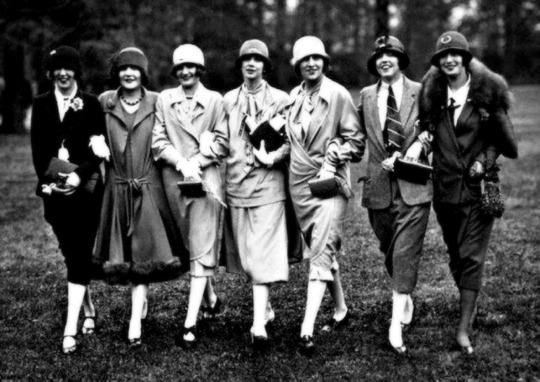
View On WordPress
#&039;Oíche Nollaig na mBan&039;#Epiphany#Little Christmas#Nollaig na mBan Shona Daoibh#Poem#Poetry#Seán Ó Ríordáin#Theo Dorgan#Women’s Christmas
68 notes
·
View notes
Photo

“I've been a long while outside,
A long time silent.
For all I know I might stay like that till the very end.”
— Seán Ó Ríordáin, ‘Silence’
125 notes
·
View notes
Text
Nollaig na mBan Shona Daoibh!
Nollaig na mBan Shona Daoibh!
On this day it is the tradition in Ireland for the women to get together and enjoy their own Christmas, while the men folk stay at home and handle all the chores. It is also common for children to help their mothers and grandmothers with household chores and extra help.
The Nollaig na mBan tradition has regenerated tremendously in many parts of Ireland and on the west coast, the tradition is…
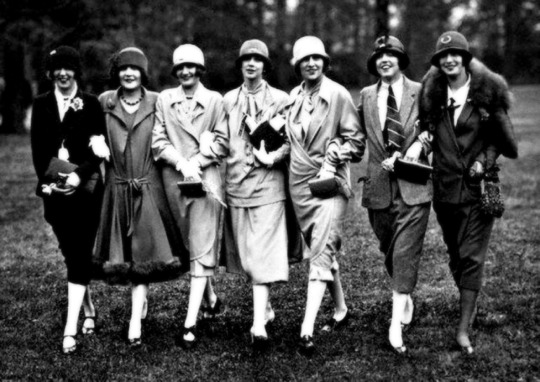
View On WordPress
#&039;Oíche Nollaig na mBan&039;#Epiphany#Little Christmas#Nollaig na mBan Shona Daoibh#Poem#Poetry#Seán Ó Ríordáin#Theo Dorgan#Women’s Christmas
10 notes
·
View notes
Text
Nollaig na mBan Shona Daoibh!
Nollaig na mBan Shona Daoibh!

On this day it is the tradition in Ireland for the women to get together and enjoy their own Christmas, while the men folk stay at home and handle all the chores. It is also common for children to help their mothers and grandmothers with household chores and extra help.
The Nollaig na mBan tradition has regenerated tremendously in many parts of Ireland and on the west coast, the…
View On WordPress
#&039;Oíche Nollaig na mBan&039;#Epiphany#Little Christmas#Nollaig na mBan Shona Daoibh#Poem#Poetry#Seán Ó Ríordáin#Theo Dorgan#Women’s Christmas
24 notes
·
View notes
Text
Nollaig na mBan Shona Daoibh!
Nollaig na mBan Shona Daoibh!
On this day it is the tradition in Ireland for the women to get together and enjoy their own Christmas, while the men folk stay at home and handle all the chores. It is also common for children to help their mothers and grandmothers with household chores and extra help.
The Nollaig na mBan tradition has regenerated tremendously in many parts of Ireland and on the west coast, the…
View On WordPress
#&039;Oíche Nollaig na mBan&039;#Epiphany#Little Christmas#Nollaig na mBan Shona Daoibh#Poem#Poetry#Seán Ó Ríordáin#Theo Dorgan#Women’s Christmas
9 notes
·
View notes
Text
Cork in Verse | Ana Spehar interviews Julie Goo
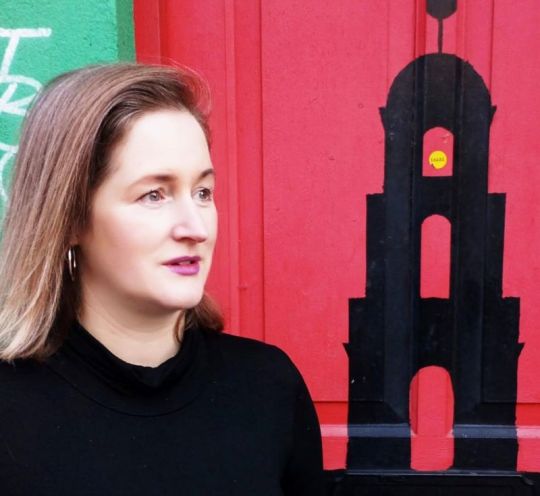
You write both in English and Irish. Is your creative process the same when using both languages? Do you find one more challenging than the other?
Yes, my creative process is the same for both languages. When I write in Irish, I would usually be surrounded by a pile of books though. I jump between dictionaries and various notebooks I have spent decades compiling. I don’t find one more challenging, but because I have such a passion and love for the Irish language, I suppose the process of writing in Irish is juicier and a bit more exciting.
Where do you seek inspiration from?
I honestly don’t ‘seek’ inspiration. My mind is bombarded with ideas day and night. Finding/making the time to exorcise them is my biggest challenge. Inspiration for me comes mostly from the senses. I am a very sensory person in a constant heightened state of observation, which can be exhausting.
In your opinion what are the most important elements of a good poem?
I think the most important elements are very personal to the poet and poem. Making sure that you are saying everything you want to say as succinctly and honestly as possible. I always ask myself ‘Why am I writing this poem?’. If there’s a hint of ego in it, I’ll drop it and move on to something else.
If you had to choose just one poem as your favourite (I assume there is more than one) what poem would it be?
Siollabadh by Seán Ó Ríordáin. I love its playfulness and meditative rhythm. I had read an Ursula K. Le Guin short story years before reading Siollabadh and they strangely echo one another. I can’t remember the name of the short story though, and it’s kind of wrecking my head now!
What book/books would you recommend to our readers?
I wouldn’t know where to start so I’ll just name some of the books I’ve read recently which I’ve enjoyed:
Eimear Ryan Holding Her Breath
Kae Tempest On Connection
Peadar Ó hUallaigh’s poetry collection An Ceirtlín Órga.
But the Irish Language is dead
‘But the Irish Language is dead’
you casually said whilst
sweeping a hair from your face,
you seemed perplexed to learn
of my postgraduate studies in Gaeilge,
I looked to the sky hoping
to summon a response
one which would articulate the
intimate relationship my soul has with
my mother tongue, although my mother
did not speak Irish well, one could tell
through her use of the habitual present
as-she-do-be talking away about her day
that her ancestors spoke Irish,
‘But what use is it to you?’, you continue,
my gaze is drawn to the street name
fastened to the wall above the
chip upon your shoulder
lips pressed together
my tongue dances the words
‘Siúlóid na Lobhar’
‘Walk of the Lepers’
three Gaelic words so modestly disclosing to me
forgotten history, ‘Walk of the Lepers’
I imagine them
shuffling their way
to the river to bathe
lumpy limbs,
the anglicised version paints
a different picture however
as it declares we stand at ‘Lover’s Walk’,
lepers were abandoned in translation
and lovers lived happily ever after
‘And how is it’, you ask
‘we sat in the same class as girls
listened to the same teacher
heard the same words?’
How is it that I embraced this language?
absorbed it’s (her) complexities?
Almost apologetically I shake my head
and say, ‘I do not know’,
you reveal having been force-fed
Gaeilge in Primary School
you gargled it through your teenage years
dribbling sentences here and there
slipping on your mistakes
until finally the day came when
you could spit it out
I empathise with you
but plead with you
in my mind
not to declare a language dead
because you cannot find a good reason
for its existence
You joke that we are getting old
I decide to share with you
linguistic gold
‘Ag teacht chun na foirfeachta’
describing the process of ageing
not as decaying
but as ‘coming into perfection’,
I see the reflection of the sun in your eyes
as we say our goodbyes
leper-shaped clouds
form in the sky
Published in Cork Words 2: An Anthology of Contemporary Cork Writing.
Dear Society
I am a homo, homosapien
I am attracted to other homos, homosapiens
I am a member of the LGBTQRSTUVWXYZ community
a group of people in society
segregated by our sexuality.
I am not queer, I am here, and I am me.
If my honesty offends your inability
to accept that I am free
to love the essence of femininity, well
I do not apologise, for beauty lies in the eyes
of the beholder, and will hold her.
Her curves have been moulded to fit
the pieces of my life society which
you have jig sawed apart
we fit together like art
but our love is no
exhibition to be stared at.
And if you are to say to me that
‘God made man and woman to make child’,
I respect your right to be so black and white
but I am grey, and I also pray that
one day you may awake to see
that black and white blends to make me.
I am exhausted society from trying to suit you
my spine aches contortionist pains
from trying to fit into this closet,
from which I emerged terrified and alone,
back into my family home to sit my elders
down and reveal to them what felt like bad news.
But why should I, society?
Come crawling to you to accept me?
When it is you who should come crawling in apology
for building that closet and forcing me in it!
Innit?
Why is it that you accept men to hold guns, but not hands?
Published in Twin Skies; Poems from Cork and Coventry & Chapbook Poetry Worlds; Lost in Print.
Julie Goo is an established Spoken Word poet from Cork City. She was runner up in Slam Filíochta 2021, won the Heart of Gort Slam in 2019, and was crowned Munster Slam Champion in 2012. Goo has performed her work on numerous stages in Ireland and abroad including: TedX Cork, Winter Warmer, Ó Bhéal, Body and Soul, Electric Picnic, Cork Midsummer Festival, Indiependence, and Live at St. Lukes. Julie Goo has numerous videos and poetry films on her YouTube Channel, and updated information on her Facebook page.
Julie is widely published in the Irish Language under the name ‘Julie Field’. Coiscéim published her collection DÁNA in April 2021 which is available to buy online and in Vibes ‘n Scribes, Cork.
Julie has collaborated on numerous poetry films and is currently making trip-hop/hip-hop electronic music with DJ Milis under the name shelovescalpol.
0 notes